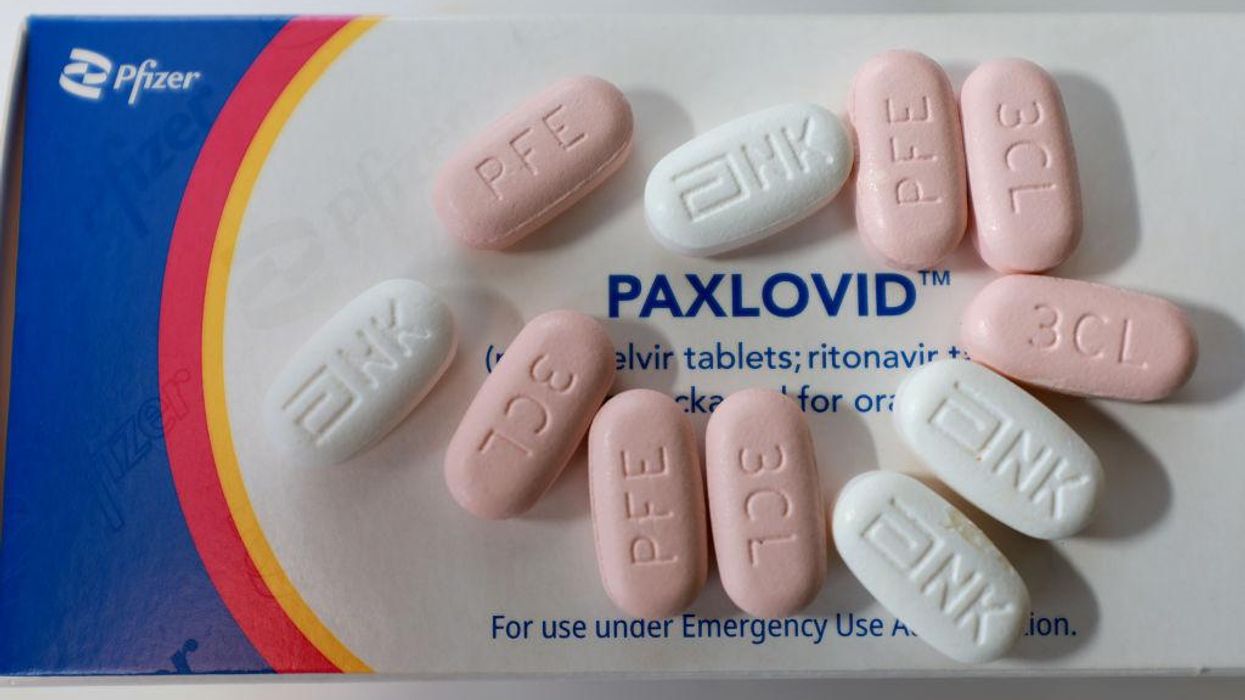
Joe Raedle/Getty Images

Paxlovid, the COVID-19 antiviral pill developed by Pfizer that was once celebrated as a "game-changer" for the pandemic, has little to no benefit for younger adults, while it still appears to reduce the risk of hospitalization or death for high-risk seniors, according to a new study published Wednesday.
“Among patients 65 years of age or older, the rates of hospitalization and death due to Covid-19 were significantly lower among those who received nirmatrelvir than among those who did not,” the study published in the New England Journal of Medicine stated. "No evidence of benefit was found in younger adults."
Israeli researchers examined data from 109,254 Omicron-variant coronavirus patients over the age of 40 who are members of Clalit Health Services, the largest of Israel's four state-mandated health service organizations. They found Paxlovid reduced hospitalizations of individuals 65 and older by about 75% when administered shortly after infection. Those results were consistent with clinical trials, which found the drug had an 89% reduction in the risk of hospitalization and death and prompted U.S. health authorities to grant Pfizer an emergency use authorization for the pill.
However, when it came to adults between 40 and 65, the drug was shown to have no measurable benefit, according to the analysis of patient data.
"Among patients 65 years of age or older, the rate of hospitalization due to Covid-19 was 14.7 cases per 100,000 person-days among treated patients as compared with 58.9 cases per 100,000 person-days among untreated patients," the study said.
"Among patients 40 to 64 years of age, the rate of hospitalization due to Covid-19 was 15.2 cases per 100,000 person-days among treated patients and 15.8 cases per 100,000 person-days among untreated patients."
The study authors acknowledged limitations in its design, which took a retrospective look at Israeli medical data rather than enrolling patients in a randomized study with a control group. They noted that some patients may not have had access to Paxlovid or that differences in early diagnosis could affect who was given the pill, which means some data on how individuals respond to treatment could be missing.
"We assume that the patients who were likely to be hospitalized because of severe symptoms were systematically treated at a higher rate. Since these symptoms were not reported consistently, it is likely that the treatment effect was underestimated in this study," the authors wrote.
The Biden administration has given a full-throated endorsement of Paxlovid to combat the pandemic, backed by more than $10 billion spent purchasing the drug and making it available to Americans.
The U.S. Food and Drug Administration granted emergency authorization for the drug late last year for adults and children 12 years or older who are considered to be at high risk because of pre-existing conditions like obesity, diabetes, and heart disease.
The Associated Press reported that more than 3.9 million prescriptions for Paxlovid have been filled since the drug was approved. President Joe Biden and White House chief medical adviser Dr. Anthony Fauci are among those who have been prescribed Paxlovid to treat their COVID-19 infections.
Doctors recommend that those given a Paxlovid prescription to treat their COVID-19 infection begin taking antiviral pills immediately. The recommended prescription is three pills taken twice a day for five days, according to Scripps Health.
Common side effects of Paxlovid include diarrhea, nausea, vomiting, and an altered sense of taste.
“Ironically, these can also be symptoms of COVID-19. The side effects of Paxlovid can sometimes outweigh the benefits of taking the medication, which is another reason why this medication is prescribed only to those at high risk,” according to Dr. Ghazala Sharieff, Scripps Health chief medical officer.
Health officials advise that certain common medications may have adverse interactions with Paxlovid and should avoid being taken during treatment with Paxlovid for COVID-19.
“There are certain medications, such as statins and other cholesterol-lowering drugs, where you need to consult with your physician regarding possible interactions,” Dr. Sharieff said. “But for some medications, like drugs that regulate heart rhythm, Paxlovid is not indicated. In those cases, your doctor may recommend another antiviral medication, such as molnupiravir or monoclonal antibody treatment, for COVID-19 instead.”
Some COVID-19 patients who take Paxlovid may experience a "rebound" case of COVID-19. Some studies have suggested that one in 10 coronavirus patients will experience a rebound after their initial symptoms have gone away and that use of Paxlovid was associated with greater incidence of viral rebound compared to no treatment.